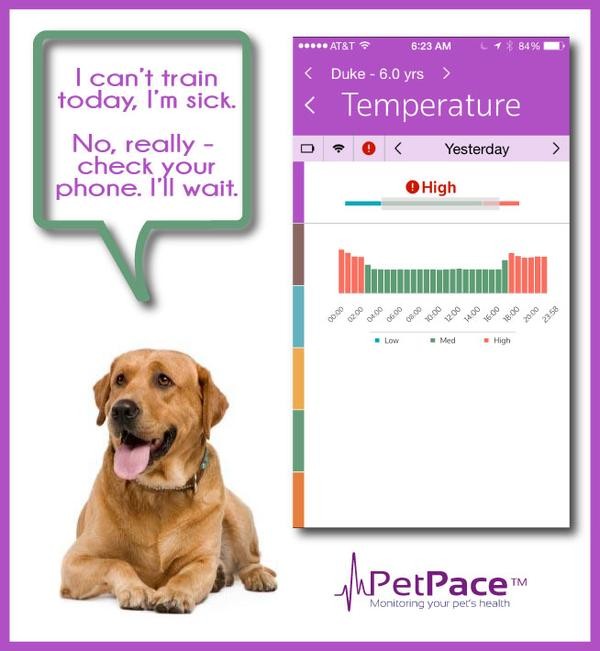The first smart pet wearables on the market used GPS to track animals' activity and traced runaway dogs. Meanwhile, two new models monitor different health vital signs including breathing and heart rates, and check for fevers and pain.
Massachusetts-based PetPace has launched a medical collar that checks for pain in a dog by measuring its vital signs and other data. If it detects any red flags it notifies the owner by text, call, or e-mail.
Meanwhile, Virginia-based I4C Innovations Inc. has unveiled Voyce Pro. It allows veterinarians to track pets that are recovering from long-term ailments or surgery.
Owners can program both smart pet collars to monitor a cat's or dog's particular illnesses. They can be used on canines and felines at least 8 pounds (3.6 kilograms).
The pet collars will be instrumental in detecting symptoms of animals suffering from long-term illnesses. Examples include epilepsy and heart conditions.
PetPace launched its monitoring collar, which has been tested on thousands of pooches, three years ago, according to Oregon Live. There is a version for pet owners and animal doctors.
The smart collars have some drawbacks. They include battery lives as short as two days, and small amounts of data measured and delivered, according to The Kansas City Star. These can be big problems when pets have conditions that require around-the-clock monitoring.
PetPace's collars are can be purchased at petpace.com for $150, and $15 per month. Meanwhile, Voyce models are available at voice.com with a price point of $200 and $9.95 per month.
The world's first collars for pets appeared in ancient Egypt. Besides being used in dog training, the fashion items were themselves often works of art.




























